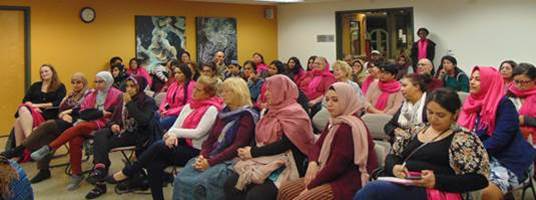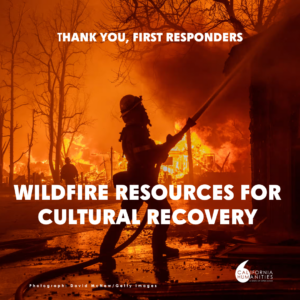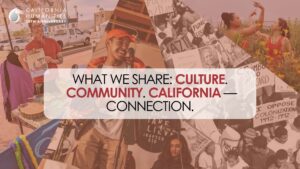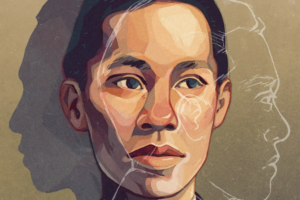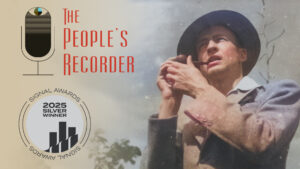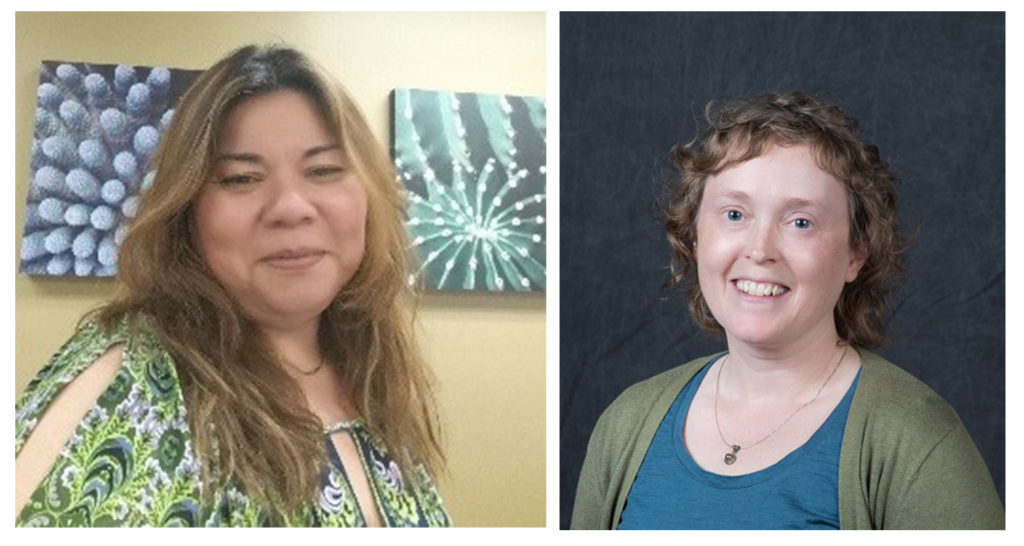
This past year, ten library staffers from around the state participated in the Library Innovation Lab (LIL). This hybrid grant-professional development program supports participants in planning and piloting a short-term public humanities project at their library. Through a wide range of activities including oral history workshops, participatory arts programs, book discussions, author talks, interpretive exhibits, demonstrations of traditional arts and cultural forms, and documentary photography and filmmaking, participating libraries brought the voices and stories of California’s diverse immigrant populations into focus, centering their experience as part of the evolving California story. These accomplishments were due, in large measure, to the support our peer mentors, Guadalupe Gomez (Anaheim Public Library) and Erin Sanders (Oakland Public Library), provided the cohort this year. In recognition of their service over the past two years as mentors (in Guadalupe’s case, three years), we’ve asked them to share some thoughts about their experience with the program.
What about the Library Innovation Lab program stands out to you compared to other professional development programs you’ve participated in?
Erin: Most programs focus on the development of the individual participant. Of course, that is an element of LIL – grantees hone their skills in design thinking, community assessment, project management – but there is also an aspect of community building that is unique. It is so refreshing to build public-facing programs with creative, like-minded library colleagues. Connections are fostered in each cohort that lasts well beyond the grant period. Plus, the support provided is fantastic. Mentors and California Humanities staff not only provide support on the nuts & bolts of the grant requirements but also offer creative solutions and solid advice to participants.
Guadalupe: Through a series of skill-building opportunities, LIL gives participants the tools to gain experience in creative thinking and problem solving, building community, and strengthening relationships. It’s also an opportunity to meet amazing colleagues from across the state!
How did your own experience as a cohort participant in 2018 affect your approach to mentoring?
Guadalupe: It helped me better understand the challenges mentees might discover and how to better assist them in finding solutions. As a mentor, I had the opportunity to motivate and encourage others to be open-minded and not be afraid to try something new – things I had learned as a participant.
Erin: It helped me to anticipate what questions and needs my mentees brought up because I had those same questions!
Can you share an interesting anecdote from your experiences over the past few years?
Guadalupe: What resonates is the phrase participants and presenters used over and over: we are more the same than we think. Sometimes we are so busy trying to see our differences that we do not realize how similar we are. For example, people are still talking about the amazing Power of the Scarf program we did in Anaheim back in 2018 that revolved around sharing the many purposes women wear a scarf and how powerful the scarf is in the Latino and Muslim communities. It was a celebration of identity, heritage, roots, faith, and liberation. Who would have said all this could happen in a public library?
Erin: I still have patrons who comment on the performance by Kabul Dreams, a rock band from Afghanistan, that we hosted at my branch. That was in 2018, but the novelty of seeing a rock show at the library has not worn off – in part because of the band’s story.
How has your involvement with this program – both as a cohort participant and a mentor — changed your view of public librarianship?
Erin: It helps me view program planning as an iterative process, which gives me the confidence to try new things. It also underscores the importance of community feedback as part of my decision-making process. As a mentor, it’s been interesting to observe similarities among library systems across the state regarding approaches to programming, populations served, and the desire to make genuine connections with local communities. I think my experience has made me a more thoughtful program planner.
Guadalupe: It is a reminder of why I became a librarian: I wanted everyone’s voice to be heard and for the community to be connected.
Why would you encourage other library workers to participate in this program?
Erin: LIL is not just extra funding for a cool library event. It will help you develop meaningful, community-reflecting programs, build professional skills and connect with like-minded colleagues across the state.
Guadalupe: LIL gives participants the tools and resources to reach and serve underserved immigrant groups in their communities. Funding allows participants to create unique programs that welcome immigrants to share their stories, be recognized, and acknowledged. As a result, participants learn new skills, make new connections, and enhance their skills to foster more inclusive communities.
The Library Innovation Lab program accepts applications for the 2022 cohort until March 1, 2022. For information and to learn more about the program, click here.

